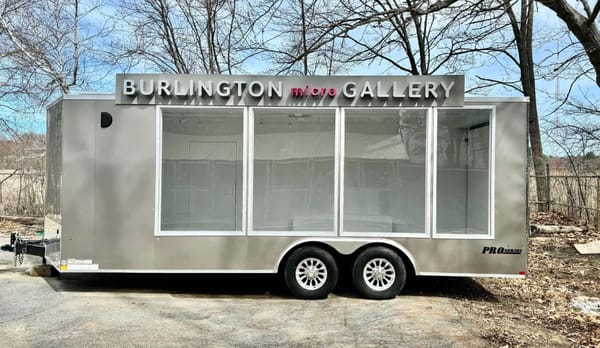Town Meeting | To Hybrid or Not to Hybrid?
An attempt at a balanced discussion

I’m sick of COVID. I don’t want to talk about it anymore. So when I started this article out by mentioning the pandemic, I cringed. I’m sure you’re sick of it, too. So, here’s my apology for talking about coronavirus. It’s necessary for our purposes here, but I promise I’ll keep it to a minimum.
No matter your stance on masking, vaccination, or any of the other mitigation measures instituted during the pandemic, I think we can all agree that COVID-19 has been a massive thorn in our collective side for over two years now. I can’t count on all the fingers and toes in my house the number of times I’ve said or thought some version of, “Freaking COVID.”
But for all the angst - the existential kind and simply the inconvenient kind - the pandemic brought into our lives, it has also given us the opportunity to learn a lot.
One consideration that has come up again and again is Town Meeting. Should it be remote? Hybrid? Fully in person? Everyone has their opinion, and I’ve heard from dozens of people on all sides.
Recently, there has been much discussion among Town Meeting members about this very question, and I want to break down the main points of this discussion.
When people debate, it’s important we’re debating the same thesis. There are lots of opinions flying around, and often one assertion will be dismissed in favor of another - and the two debaters are actually talking about different things. So I want to clarify the conversation a little, especially for (a) lurkers who read posts but don’t respond for whatever reason and (b) our residents who aren’t Town Meeting Members and therefore haven’t been involved in these discussions.
What we are really asking at this point is, Should Town Meeting have a permanent hybrid option?
What is the Purpose of Going Hybrid?
There are two different rationales floating around, and this is where the first disconnect is. So let’s clarify them now.
Hybrid Town Meeting Because of COVID
State law governs how Town Meeting is run, and there is no allowance for remote participation in our general laws. Shortly after the beginning of the pandemic, legislation was put in place for remote participation in Representative Town Meeting* (which is the kind we have), for obvious health and safety reasons. In January 2022, that legislation was extended through July of the same year.
That law said (paraphrasing) if a Town Moderator deemed that the health and safety of participants could not be guaranteed in a fully in-person meeting, the Moderator could petition the Select Board to allow a hybrid meeting. That was done, and now May Town Meeting is hybrid. It’s unlikely this legislation will be extended, and so we can assume for now that COVID-related hybrid meetings won’t be happening again.
People have expressed opinions that Town Meeting can, indeed, be carried out safely in person, but that’s not really at issue here. The decision has already been made and any more discussion about it is just dust in the wind.
Hybrid Town Meeting for General Accessibility
There is currently some legislation making its way through the state house, seeking to make permanent the ability to participate remotely in Town Meetings. This legislation is not restricted to pandemic-related concerns.
The pandemic has exposed a lot of inequities in our society that have always been there, but that some of us have been (intentionally or unintentionally) unaware of. It has also opened up a lot of opportunities that weren’t there before, due to everything having to go remote.
Accessibility
Here is where we start not hearing each other. So let’s take a breath and say it loud for the people in the back: The pandemic shone a light on our need for alternative ways to participate, but COVID is far from the only reason to consider hybrid meetings. There are many people who benefit from a remote participation option. I’m certain to forget some, so let’s just establish that right off. But here are a handful.
- A caregiver to one or more young children, or others who need care.
- A breastfeeding parent.
- A single parent.
- A person who is ill and doesn’t want to spread their illness, but is well enough to participate in the discussion.
- A person with mobility challenges or other issues that make it difficult to get out of the home.
- A person who has trouble being in large groups.
- Someone who is traveling for work.
Like I said before, I am sure I’m not covering all the people who would benefit from remote participation here. But the point, at any rate, is to show that there is a huge cross-section of our town’s population that could be productive and contributing members to our local government but who are excluded when in-person participation is required. * ♀️ raises hand, along with a number of other community members ♀️*
Opportunity and Feasibility
I’m not going to go into the benefits and success stories of flexible, remote, and hybrid work right now. I’ll try and point you to some if you’re truly interested. All I will say is that many companies and other entities have been doing hybrid work for a long time and have been very productive. We have the technology to execute this, and the intelligence to make it work.
What Are the Arguments Before and Against a Permanent Hybrid Option?
It’s probably clear from the above that I have an opinion on this topic. But I’m sure you know by now I try my best to be a balanced reporter. So let’s talk about some arguments for and against Hybrid Town Meeting.
For A Permanent Hybrid Option
Proponents of a permanent hybrid option argue that:
- Hybrid meetings are more accessible to members already in Town Government.
- Hybrid meetings open the option of running for Town Government to new potential candidates who wouldn’t run otherwise, given their known scheduling/financial constraints (caregivers cost money!).
- Ultimately this broader pool of candidates is better for the whole town, because more people involved equals better representation, particularly when those additional people are those who weren’t able to be involved before and can represent people in similar situations.
Rebuttals from those in favor of solely in-person meetings are generally that if someone can’t make it in person they shouldn’t be in town government until and unless they can.
Against a Permanent Hybrid Option
Those who insist in-person is the only way Town Meeting should be conducted argue that:
- Hybrid Town Meeting costs too much.
- Discussion is difficult in a hybrid format.
- Most other arguments I’ve heard amount to some version of, “This is the way it’s always been, and this is the way it is supposed to be.”
Rebuttals from the pro-hybrid community members:
- Costs can be lowered with some thoughtful planning and offset by allowing TMMs to opt out of receiving paper warrant materials (copying and mailing all this stuff out costs a LOT).
- Our facility with discussion in a hybrid format has improved and will continue to improve once we are committed to this format as a matter of course.
- Continuing to do things the way they’ve always been done when today’s technology allows for greater inclusivity and efficiency is shortsighted and includes (and therefore benefits) fewer members of our community.
Apples to Apples
It is my sincere hope that having these discussion points laid out in black and white can help focus the discussion on the points that are actually relevant, and create a common understanding of what we are even discussing, rather than continuing to talk past one another.
Of course, it is up to the state to ultimately pass legislation allowing a permanent hybrid option or not. Depending on who you talk to, such a law is either inevitable or never going to happen. But what we can do in the meantime is to lobby our state legislators, Ken Gordon, and Cindy Friedman, to let them know what we actually want.
After listening to all sides, of course.
*I mentioned the emergency legislation was for Representative Town Meeting, which is the kind of TM we have. Open Town Meetings did not have hybrid allowances at any point, I learned in a conversation with Town Clerk, Amy Warfield.





